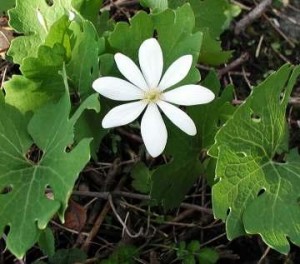 My male clientele is very small. Why??. I get very few male clients, most have cancer and prostate problems, sometimes I get mothers concerned for the welfare of their sons, bringing them to see me almost dragging them, why is that??. Males seldom seek help, they usually keep their problems to themselves.
My male clientele is very small. Why??. I get very few male clients, most have cancer and prostate problems, sometimes I get mothers concerned for the welfare of their sons, bringing them to see me almost dragging them, why is that??. Males seldom seek help, they usually keep their problems to themselves.
We are too proud, macho, invincible, we are reluctant to appear vulnerable, or weak.
Males are brought up in an unrealistic environment. We are led to believe that strength is good andemotions are not part of the male species. We are supposed to be successful at everything and failure or weakness are not allowed. Since we were little we played with guns, were soldiers, cowboys, or monsters. In school we continue to be macho and play rough games, and are not allowed to show our emotions. To be honest I don’t know at what age most of us imbedded these beliefs that will be with us for the rest of our lives.
The pressures that are created for the male start at a very early age. Playing at home with siblings or friends, then at school, our male world continues to develop until we arrive to the business world. By then we are hardened as “most males should be”, and the business world continues to prolong the myth of the male toughness to never show weakness or emotions. We like to be in control.
How then do we seek advice or help if needed?, very simply we don’t. We don’t have a male support system that will help us to flourished into a well rounded mature and completely functional being. If we seek help from our fathers we usually get someone with thesame experiences that we had as a child, and can find it uncomfortable to share intimacy with a son, that is if there is a dad in the house.
These ways of life have being going on since time immemorial, and that is the reason that most herbalist in the past (and even now) are females, and the amount of specific female herbs is much large than the males.
It is about time that we become more human, that we recognize not only our weaknesses, but that seeking help is not a shame. Once we realize that asking for help, and that our emotional balance/imbalance is normal, we will be less stressed and the manifestations of this stress on physical conditions will be less prevalent than now.
If we stop putting ourselves in this difficult position we may seek help, whether herbal or of any other type, we may discover that being vulnerable is part of being human, and that seeking help is not a shame.
SPECIFIC MALE PROBLEMS
If we want to be healthier, we most follow the main principles of a balanced life. The main principles apply to males as well as to the rest of the world:
• Let our emotions to be expressed, and balanced.
• Have a balanced life (work, relaxation, play, spiritual, family, social).
• Laughter is the best medicine, so do it often.
• Follow proper nutritional habits.
• Exercise regularly.
• Be kind to others.
• If you need help, GET IT!!!.
If we follow the above principles we will diffuse most of the common male conditions which are:
• Stress
• Hypertension
• Arteriosclerosis
• Ulcers
• Prostate conditions
• Infertility
• Diabetes
MALE MATERIA MEDICA
| Adaptogens: Herbs that help the body to adapt to a new strain/stress American Ginseng (Panax quinquefolium) Siberian ginseng (eleutherococcus senticosus) Ashwagandha (Withania somnifera) Korean ginseng (Panax ginseng) Astragalus (Astragalus membranaceus) Gotu Kola (Centella/Hydrocotyle asiatica) Stimulants: nervous
|
Aphrodisiacs: Herbs that stimulate sexual activity and libido Damiana (Turnera diffusa) Ginseng (Panax ginseng) Muira Puama (Ptychopetalum olacoides) Puncture Vine (Tribulus terrestris) Saw Palmetto (Serenoa serrulata) Yohimbe (Pausinystalia yohimbe) Prostate aids:Horsetail (Equisetum arvense) Hydrangea (Hydrangea arborescens) Nettles (Urtica dioica) Saw Palmetto (Serenoa serrulata) Pulsatilla (Anemone pulsatilla) Thuja (Thuja occidentalis) Couch Grass ( Agropyron repens) Pipsissewa (Chimaphila umbellata) Nervous Relaxants:Vervain (Verbena off.) Oats (Avena sativa) Hops (Humulus lupulus) Lemon Balm (Melissa off.) Chamomile (Matricaria recutita) Skullcap (Scutellaria lateriflora) Valerian (Valeriana off.) Passion Flower (Passiflora incarnata) Linden (Tilia europea) Borage (Borago off.) |